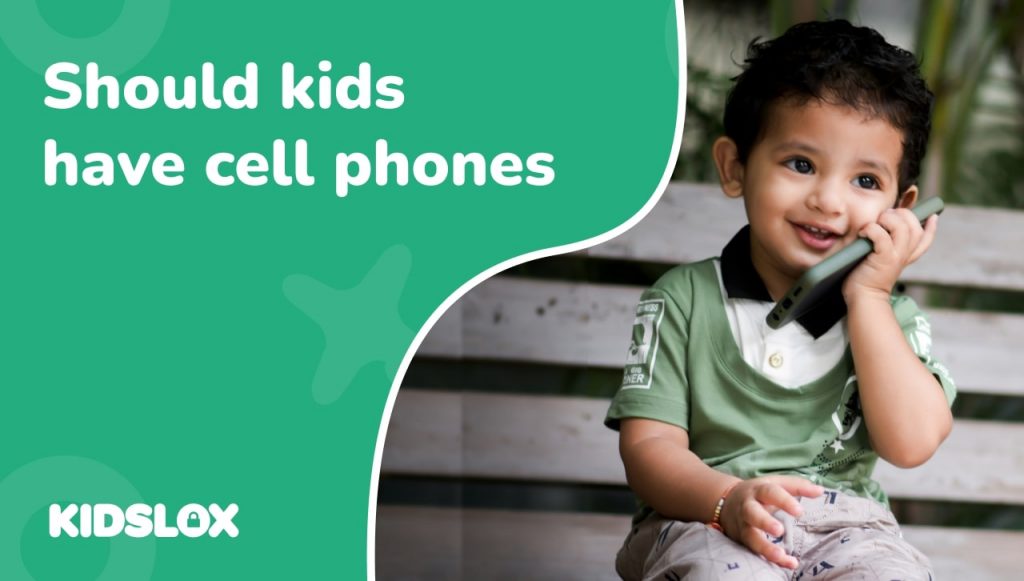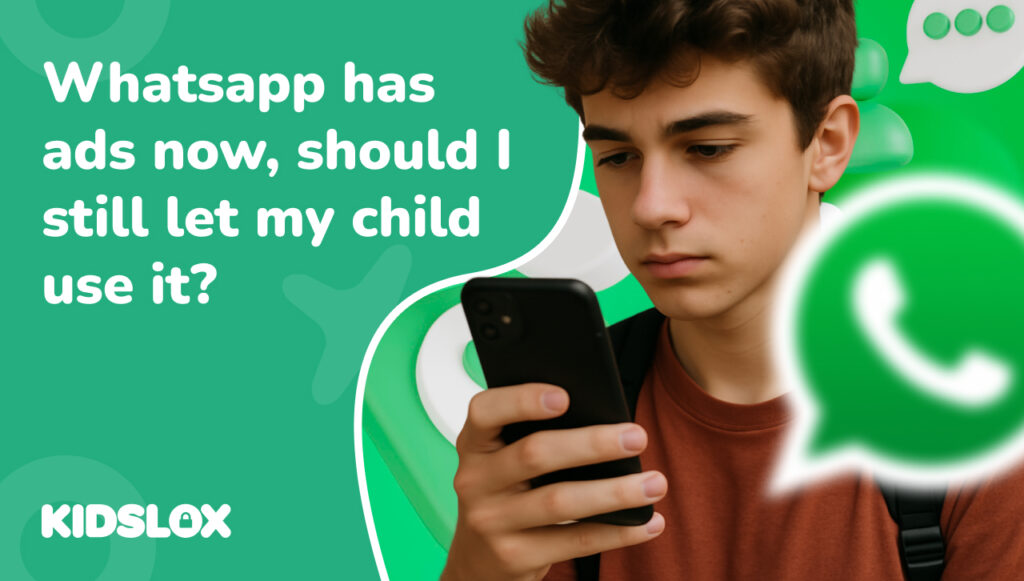In today’s world, with our ever increasing reliance on technology, it’s inevitable that the day will come where your child asks for a cell phone. As they become more independent, and start to grow their lives outside of your family unit, you might also be considering giving them a phone to help keep them safe. You might also need the convenience of ensuring you have a line to them at all times.
Whatever the reason, it’s a big decision to make. As adults, we know that cell phones can invite more into our lives than simple conversations and checking in. The internet isn’t always a positive place, and a cell phone opens them up to a new world of potential dangers, risks and behaviors that can profoundly impact a child’s life and development.
So, should you do it? Let’s take a look at the pros and cons of giving your child a cell phone.
What are the cons of giving a tween a cell phone?
Dangerous individuals and dark material
Cell phones open our children’s lives up to a lot of potential dangers. From predators who seek access to children through chat based apps and social platforms, to then being one click away from accessing adult material, the web can be a dark and murky place. Parents need to ensure they have effective tools and strategies in place to help their children navigate and avoid these downsides if they decide to give them a device.
Kids can be mean and phones enable bullies
Bullying is another big downside to having access to a cell phone, especially for tweens who are beginning to navigate complex social hierarchies as school years change. The relative anonymity of social media access via cell phone can make kids a target for covert, passive aggressive bullying online. This can take the form of harassing messages, fake profiles set-up specifically to bully and intimidate others and gossip in chat groups. Teaching kids how to report, ignore and block these bullies is key to managing their mental health when it comes to nastiness online.
Addiction and behavior
Many experts believe that the addictive nature of social media and gaming can have a negative impact on kids’ developing minds. Researchers believe this is because the interactions that occur when using our phone simulate the same dopamine reactions in our brains, and the more that happens, the more we crave them. Teenagers are more likely than other age groups to over use their phones, and research shows that the earlier a phone is introduced to a child, the more likely they are to have problems with use later on.
Distraction
Colorful games and social networks with their dopamine producing effects are an undeniable distaction. If adults struggle to keep themselves away from the lure of the screen, children and tweens are even more likely to find themselves drawn back to checking their devices over and over. Constant pings and notifications can divert children’s attention away from their essential routines and important tasks. At its worst, this constant source of distraction can manifest itself in bad behavior, poor grades and family upset.
Research tells us that the effects of cell phone overuse can also be even more disruptive for children with neurological developmental disorders such as ADHD. Children with ADHD are more likely to become behaviorally and cognitively dependent on their device and researchers have found that this can lead to other physical and mental problems, including anxiety, depression and poor sleep.
Bad behavior and ‘acting out’
While girls tend to exhibit more passive aggressive behaviors on social media, including exclusion tactics, boys tend to lean towards more risky behaviors, including prank calling and sending nude, sexual content to peers. Additionally, as children reach driving age, the temptation of checking their cell and creating content can lead to extremely risky behavior such as using the phone while driving.
What about the positives? What are the good reasons to give children a cell phone?
Most kids are going to ask for a cell phone at some point. Many parents report that this is happening earlier and earlier. Here are five reasons to give a child a phone.
Constant contact
Children under the age of 12 should be supervised at all times, and therefore don’t have a real need to have a cell because they should always be in the care of an adult who can provide a phone should they need to call you. But, as children get a little older and take themselves to school or similar, giving them a phone to keep connected and assured of their whereabouts is definitely a positive that modern technology affords parents.
Socializing with peers
This is probably the main reason why a child will ask for a phone in the first place – to connect with friends and socialize. Gone are the days of sneaking the house phone or waiting for a shaky dial up to get into MSN messenger. Today’s tweens are sophisticated social media users and are creating their own polished content too.
While it’s not a positive to be pressured into having anything, so much of our children’s world is online, having a cellphone allows them to be plugged into the growing digital connection between our offline and web-based lives. This can include keeping up-to-date with friends and extended family, being notified of information related to their hobbies and school clubs. There are a lot of positive social reasons for tweens to have a cell phone.
Teaching responsibility
If used properly, cell phones also teach kids important life lessons. Taking good care of property, keeping it safe and paying for any damage are great ways to teach kids about the value of their belongings.
Owning a cell phone can also teach children about boundaries and limits. Keeping within the set data plan, only using certain apps when you have permission and effectively managing time are all life skills that can be developed through cell phone ownership.
Many parents use cell phones and access to screen time as a punishment and reward mechanic, although experts are split on the effectiveness of this strategy in the long term.
Online etiquette
Owning a phone gives tweens and children a window to the outside world and ground to learn digital skills that will help prepare them for future schooling, work and other online based activities. Getting a head start on understanding how to behave in a responsible way, keep safe online and recognise potential dangers are all things that will benefit children in the long term.
And finally, access to the information age
Having an answer to every conceivable question in your pocket is (most of the time at least!), a positive to children having a cell phone. Curious minds have a way of finding out facts, researching homework and learning on the go. Educational apps and learning based games are all available, as well as having the ability to listen to audiobooks and educational podcasts for personal interest and learning too.
So what’s the best approach? Should kids have cell phones?
Ultimately, the decision is personal and one that parents and guardians should make in the best interests of the child. This involves taking into account the tween or child’s maturity level and individual circumstances.
For most parents, safety and convenience would be the two overriding positive, and practical reasons for giving your child a cell.
You’ve weighed up the pros and cons and have decided it’s time to give your child their own cell phone. What now? Here are some tips to help manage the negatives, and keep your child’s cell phone use as positive as possible.
Putting a cell phone plan in place
Buying the cell phone is a big decision, and managing it correctly to keep your child safe is essential. By laying down some ground rules from the beginning, you can help your child keep the relationship they have with their device a good one.
Make a contract
Before you give your tween their first phone, make sure you discuss the rules up front. Sit down with your child and agree together on the things that are going to make the new addition to the family dynamic a harmonious one.
This should cover everything from the time limits spent on the phone, no-go time periods when the focus should be homework or family time. The amount of time to spend on social media apps, which apps are allowed on the phone and types of sites that the child can visit.
Make sure you cover off phone etiquette and agree whether or not you, the parent, will be allowed to check the phone periodically.
Set out who pays for any damage and let the child know that misuse of the device, or breaking rules will result in the phone being confiscated.
You can use a tool like Kidslox to help you set these guidelines into practice. Other things include ensuring the device is fully charged and more behavioral rules such as no phones at the table can all be included.
Do as I do, not just as I say
Giving your child a cell phone is a good opportunity to assess your own habits with technology. Children model what we do, so if we’re constantly checking our social feeds or texting, we can’t expect them to moderate their usage too.
Agree to put phones out of reach when it comes to family time, and make sure everyone has some phone-free time to build relationships and keep connected with real life friends, activities and hobbies.
No phones before bedtime
Another key element is to make sure that sleep is protected. Research shows that phones, games and apps can have a negative impact on sleep. From disrupting sleep quality to making it hard to fall asleep, having a cell phone in your tweens bedroom isn’t a great idea.
To get rid of any arguments, buy everyone in the house an ‘old fashioned’ alarm clock and encourage the entire family to put their phones to bed at least an hour before you go to sleep.
Safe and sound
Make sure that you onboard your child with a crash course in internet and cell phone safety before you hand over the phone. This should include golden rules like keeping social profiles completely private, never accepting messages from strangers, connecting only with people you know in person and how to block, delete and report any harassment or inappropriate messages.
Let your child or tween know that you can, and will, check their internet history, and make sure you set their device to safe surfing mode so that adult sites are blocked from their reach.
Teach them that the internet is a permanent place, and the way that they behave on it now has a long term impact on their future schools, jobs and reputation.
Make sure they know to always answer your calls, text back immediately and that you will have a note of their location at all times.
Make it age appropriate
Tweens have limited reasons for having a phone as they should be with any adult at all times. Phones are much more sophisticated than a simple call and text device, and all children will want to use them for games, socializing and fun. It’s important to take a note of the appropriate screen time limits for your child’s age group, and follow those guidelines accordingly so that your child doesn’t spend too much time away from essential developmental and physical activities that cell phones don’t promote.





